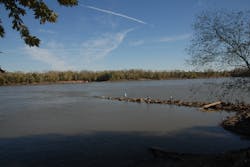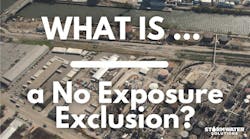EPA Helps Missouri Comply with Water Quality Standards
The U.S. Environmental Protection Agency (EPA) Region 7 has approved Missouri’s change to state water quality standards rules to provide greater flexibility in Missouri’s National Pollutant Discharge Elimination System (NPDES) permit program.
The Missouri Department of Natural Resources submitted rule changes to EPA on Dec.11, 2012, for review and approval. The Clean Water Act (CWA) requires EPA to review the state’s rule changes to determine if they comply with the law.
The state’s regulations previously allowed no more than three years for a permittee, such as municipal sewage treatment plants and industrial facilities, to come into compliance with its NPDES permit. Due to the limits of current technology for controlling some pollutants, full compliance is not always possible within a three-year period. Missouri’s new regulation now allows for a longer compliance period, in accordance with federal regulations.
“EPA appreciates Missouri’s continuing efforts to protect and restore water quality,” said Karl Brooks, EPA regional administrator. “Missouri facilities are developing new approaches and technologies that require some flexibility in the permit program, so this new rule will encourage both innovation and compliance.”
As authorized by the Clean Water Act, the state-administered NPDES permit program controls water pollution by regulating point sources that discharge pollutants into waters of the U.S. Point sources include pipes or man-made ditches. Individual homes that are connected to a municipal system, use a septic system, or do not have a surface discharge do not need an NPDES permit. However, industrial, municipal and other facilities must obtain permits if their discharges go directly to surface waters.
EPA’s Jan. 25, 2013, decision letter provides a more detailed description of EPA’s review and the basis for this action. Click here to view the decision letter.
Source: U.S. EPA


